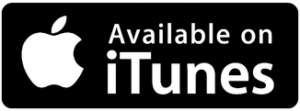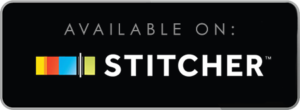Do you struggle with keeping realistic expectations? In this episode of the Maximum Lawyer Podcast, Tyson and Jim share their insights on unbridled optimism and how it relates to the field of law.
In this episode, Jim & Tyson interview Patrick J. Higgins, a Medical Malpractice, Personal Injury and a Litigator Lawyer out of New York who has recently opened his own law firm; The Law Offices of Patrick J. Higgins, PLLC. Listen as they go over this big step after practicing for over 32 years; his mindset, strategy, marketing, challenges and surprises on the way!
[smart_track_player url="http://traffic.libsyn.com/maximumlawyer/Episode_25.mp3" social_linkedin="true" ]
Register to MaxLawCon19, June 6 and 7 in St.Louis.
Topics:
- About Patrick:
- Opened his firm in May of 2018
- Plaintiff Personal Injury and Medical Malpractice lawyer for about 33 years
- No volume business; 15 or 20 cases
- A funny story with our friend John Fisher
- Patrick witnessed John Fisher going out on his own
- “He was ahead of the curb and he was bringing in a lot of cases”
- What changed in 2018 and made Patrick go out on his own
- “I want to do what I want to do and I have the ability to go out on my own”
- Improvements for his website: http://phigginslaw.com/
- How do he gets his cases:
- Personal relationships
- Referral attorneys
- Referral based marketing
- Content creation
- Repurposed BAR content
- Classic and simple questions
- Challenging thing since starting his firm
- Recognize what he needs to develop as a skill set
- Work on vision and on strategic goals
- Books and podcasts
- Good to Great by Jim Collins: “The Flywheel Concept”
- Patrick’s Vision
- Make X amount of money
- Serve 15 to 20 clients
- 3 Legal Services a year
- Fully automated, top notch website
- The best manage firm
- Be in control
- Out on your own with no one to bounce things off of
- Meetings with people who run their practices
- Advice to himself
- Developing the client base much earlier
- Understand what clients understand
- Chart an independant course
- Surprises going out on his own
- Less time for legal work
- 50% of the time working on the business
- One of the most accelerating things about running your own firm is just all the new things you do get to do and learn. GROWTH.
SUPER DUPER EARLY BIRD PRICES are still available for The MaxLawCon19
Thanks so much for listening to the show! If you want to know more about this and keep on maximizing your firm, please join our Facebook Group or like us on Facebook and comment!
You can also go to MaximumLawyer.com or, if you’d prefer, email us at: [email protected]
Jim’s hack: When you are working on a brief or any kind of pleading or anything important, right before you are done editing it, when you think you’ve edit it as much as you can, change the font to a different font and make it bigger. When you read the text again you see things differently.
Patrick’s hack: A client communication tip. When you explain something to a new client, ask them to relate back to you what you just told them.
Tyson’s tip: Speak to your accountant and reduce your tax bill for next year.
//
Do you want to get on the show? Shoot us an email or message us!
The Maximum Lawyer Podcast. Partner up, and maximize your firm.
Guild Membership
Free Access to Stage 1 of Maximum Lawyer in Minimum Time
Sign Up Today!Customer Reviews
4.9 out of 5
Join Our Facebook Group
Enjoy Exclusive Access To Stage One Of The Maximum Lawyer In Minimum Time Course
Privacy Policy
This privacy policy has been compiled to better serve those who are concerned with how their ‘Personally Identifiable Information’ (PII) is being used online. PII, as described in US privacy law and information security, is information that can be used on its own or with other information to identify, contact, or locate a single person, or to identify an individual in context.
Please read our privacy policy carefully to get a clear understanding of how we collect, use, protect or otherwise handle your Personally Identifiable Information in accordance with our website.
What personal information do we collect from the people that visit our blog, website or app?
When ordering or registering on our site, as appropriate, you may be asked to enter your name, email address or other details to help you with your experience.
When do we collect information?
We collect information from you when you register on our site, place an order, subscribe to a newsletter, Use Live Chat, Open a Support Ticket or enter information on our site.
How do we use your information?
We may use the information we collect from you when you register, make a purchase, sign up for our newsletter, respond to a survey or marketing communication, surf the website, or use certain other site features in the following ways:
- To personalize your experience and to allow us to deliver the type of content and product offerings in which you are most interested.
- To improve our website in order to better serve you.
- To allow us to better service you in responding to your customer service requests.
- To quickly process your transactions.
- To send periodic emails regarding your order or other products and services.
- To follow up with them after correspondence (live chat, email or phone inquiries)







